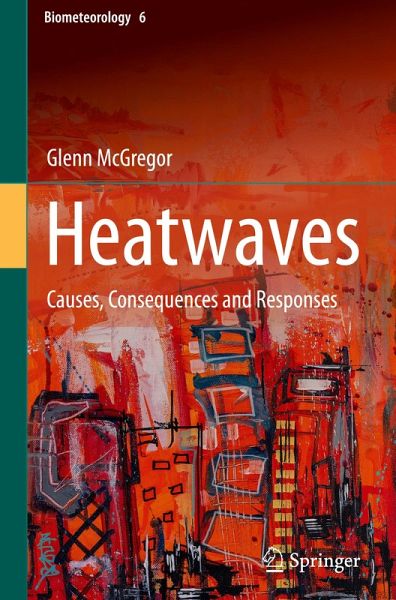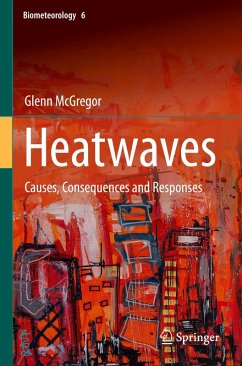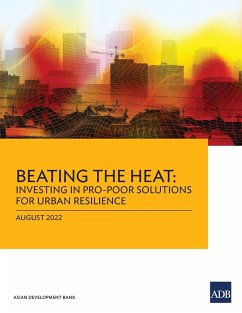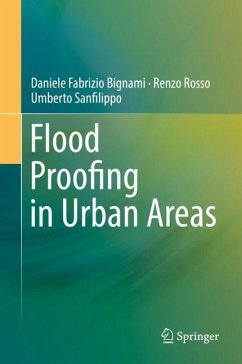
Heatwaves
Causes, Consequences and Responses
Versandkostenfrei!
Versandfertig in 6-10 Tagen
152,99 €
inkl. MwSt.
Weitere Ausgaben:

PAYBACK Punkte
76 °P sammeln!
Distinctively, this book brings together an end-to-end understanding of heatwaves, that is, a consideration of their causes, consequences for human and natural systems and societal responses to them in the form of adaptation and mitigation actions. It advocates for recognizing "the heatwave imperative" and emphasizes that "heatwaves matter". Together, the individual chapters make the point that "knowing heatwaves" from a holistic interdisciplinary perspective will assist with efforts towards heatwave risk reduction and building resilience to what is probably the most pervasive of a range of cl...
Distinctively, this book brings together an end-to-end understanding of heatwaves, that is, a consideration of their causes, consequences for human and natural systems and societal responses to them in the form of adaptation and mitigation actions. It advocates for recognizing "the heatwave imperative" and emphasizes that "heatwaves matter". Together, the individual chapters make the point that "knowing heatwaves" from a holistic interdisciplinary perspective will assist with efforts towards heatwave risk reduction and building resilience to what is probably the most pervasive of a range of climate hazards.
The book will be of interest to upper level undergraduate and taught postgraduate students and researchers in geography, climatology, environmental, atmospheric and population health sciences as well as climate and health researchers, urban planners, policy makers and the informed public with an interest in climate and society issues.
The book will be of interest to upper level undergraduate and taught postgraduate students and researchers in geography, climatology, environmental, atmospheric and population health sciences as well as climate and health researchers, urban planners, policy makers and the informed public with an interest in climate and society issues.














